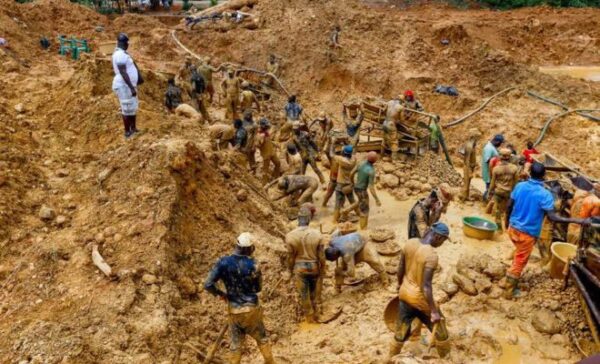ENVIRONMENT watchdog, Zimbabwe Environmental Law Association, says school children were now increasingly participating in artisanal gold mining activities owing to inactivity and rising poverty levels worsened by a prolonged Covid-19 lockdown.
Speaking to this publication on Tuesday, the environment watchdog’s deputy director, Shamiso Mtisi said a number of Zimbabwe children were now risking young lives through taking part in the illicit practice.
“An increasing number of children in Arda Transau along Odzi River, Penhalonga, Mudzi, Mazoe, among other areas are involved in gold mining.
“Some of these children are being forced to accompany their parents while others are in paid work,” he said.
Mtisi said the current child rights programme being run by ZELA was overwhelmed and could not effectively reach out to all areas where the activities were taking place.
“Preliminary information gathered indicates that there are a lot of child-headed households in need to generate income especially in the Arda Transau area.
“Parents do not have jobs and since schools are closed due to Covid-19, gold mining has become an option for the children,” Mtisi said.
He said the involvement of children was exposing them to other immoral activities such as drug abuse and prostitution.
Zimbabwe Miners Federation president Henrietta Rushwaya both confirmed and condemned such practices describing them as “immoral and illegal”.
“We have zero tolerance to use of minors in the industry. Child Labour is a big NO in the Zimbabwe Artisanal Small-Scale Mining Sector,” she said.
The reports come shortly after an incident where 14-year-old Wisk Peter Chimwayi, a Grade 7 pupil at Rukanda Primary School in Mutoko, suffered spinal cord damage during a mine shaft collapse in Mutoko.
The boy is now paralysed and in need of financial help for advanced treatment.
Zimbabwe has ratified all key international conventions concerning child labour.
These include the International Labour Organisation’s Conventions 138 on the minimum wage and 182 on the worst forms of Child Labour.
The Children’s Act (Chapter 5:06) also exists to protect the rights of children from typical forms of abuse.




